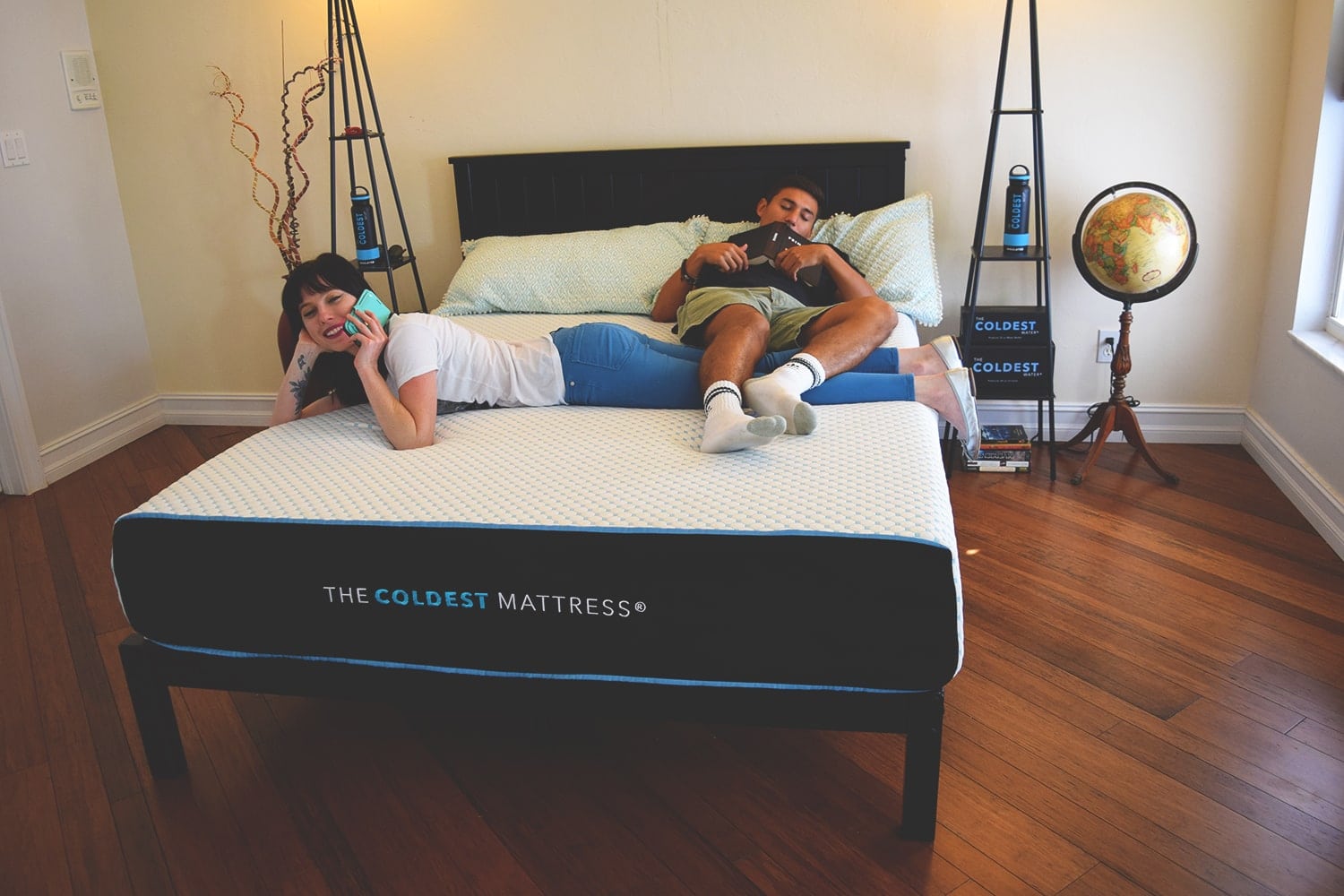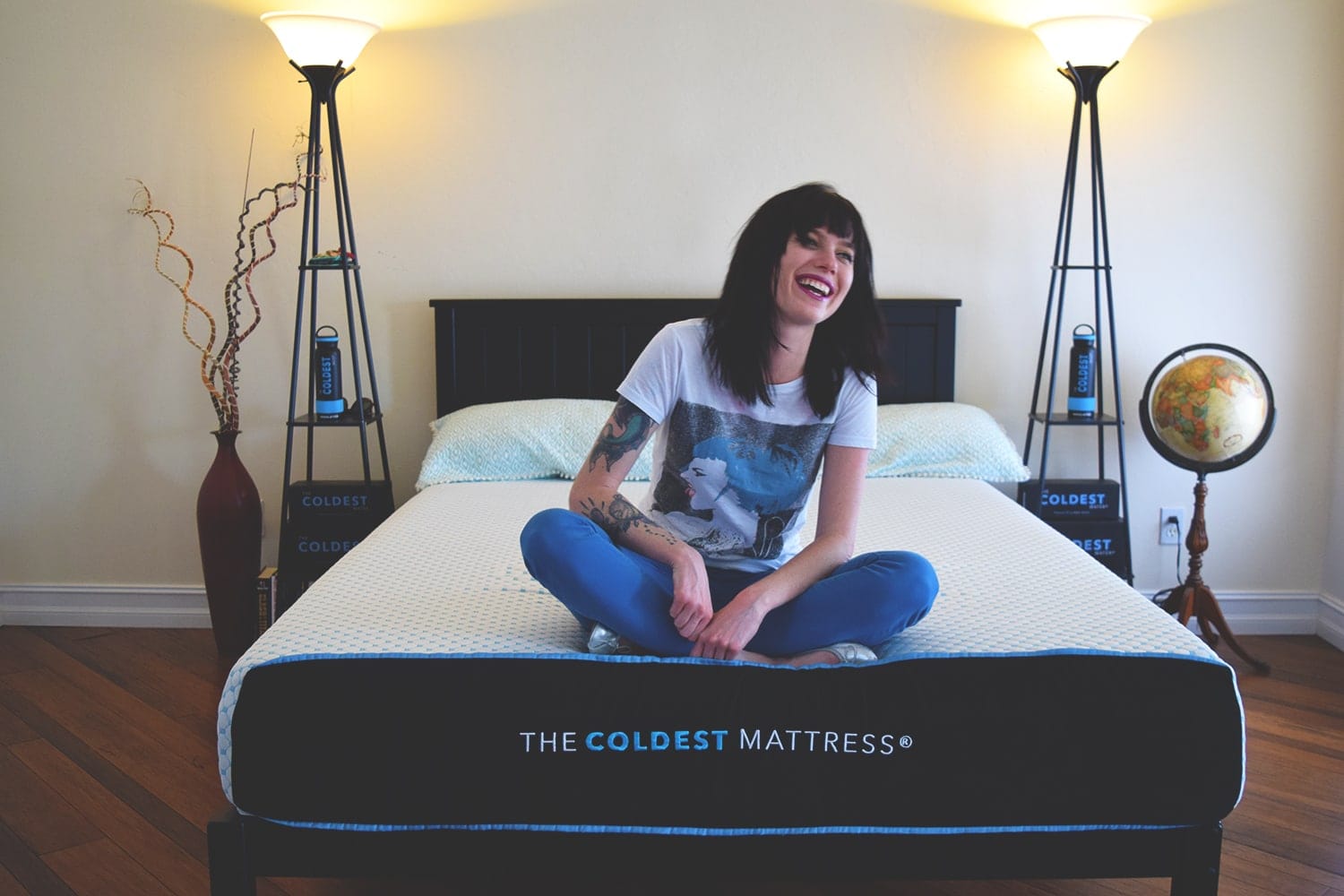Why do Some Women Sweating At Night?
Why do Some Women Sweating At Night?
Have you ever woken up to find yourself covered in sweat? It may make you ponder over what makes people sweat in their sleep. If it keeps happening over and over again, it could be related to some health issues and could call for additional assessment. Furthermore, it may indicate various things in kids and menopausal women. Let me show you a number of factors which make people sweat in their sleep.
Increased Body Heat plus the Sleeping Area:
The most prevalent reason people get damp with sweat in the night is that the temperature of their bodies increase due to the warmth of the room in which they sleep. If you set your thermostat to the highest, if you are putting on thick clothes or you are hiding under a mountain of blankets and duvets, or you are not using the Quality Mattress and Perfect Pillows. I am not surprised that you are sweaty. It is perfectly normal.
Also, the body has certain normal variant levels of body heat while one sleeps. A large number of people undergo a decrease in their regular temperature as morning approaches, at about 4 am. What is more, at some stages of sleep, a part of the nervous system which regulates the heart rate, temperature, blood pressure and a host of other activities within the body gets stimulated and this could, in turn, cause some sweating.
At the stage of sleep called the REM, the body sweats less, even though there is an increase in temperature in various sections in the brain, accelerated heart rate, enhanced breakdown of glucose in the brain and increased fight or flight response.
Read More: Choose the Right Mattress and Pillow for Good Sleep

SHOP NOW
Sleep Conditions Lead to Night Sweats:
It comes as no shock that sleep ailments also cause sweating at night because these two factors take place simultaneously. Of all these ailments, sleep apnea is the most prevalent. If you find it hard to breathe while you sleep, this would automatically cause you to intensify efforts and energy to breathe. Picture how profusely you sweat after running a ten-mile race and how hard you breathe. Furthermore, every incident of sleep apnea aggravates a stress hormone called cortisol. The cortisol helps restore normal breathing. Incidents of sweating at night could reduce if you successfully use PAP therapy. When this happens the quality and quantity of your sleep will improve and so will your being alert in the daytime.
For toddlers and children, disorderly breathing while sleeping could have sweating and fidgety sleep as symptoms. A child who suffers such could wake up all red and sweat-drenched. A situation like this should be looked into quickly, more than ever if the child suffers from snoring and some other symptoms of apnea. Sweating at night in addition to insomnia may be pointing towards a higher chance of disruptive sleep apnea.
In women who are in the early stages of menopause, there are higher occurrences of hot flashes at sleep time. Women who are postmenopausal say they have inadequate sleep as a result of insomnia which is brought on by hot flushes and sweating at night. Captivatingly, the danger of disruptive sleep apnea intensifies to about ten times during this period because of the deficiency of progesterone and estrogen. Consequently, sweating at night in women of age may happen alongside menopause because of apnea.
Read More: Best Ways To Stop Night Sweats for Better Sleep

SHOP NOW
Alcohol Intake:
A number of people observe that they sweat more when sleeping after they have drunk alcohol. Addiction to alcohol is one particular factor that could lead to night sweats. Alcohol as a substance relaxes the muscles and this action could disturb the airway and exacerbate snoring in addition to sleep apnea. As a result, the intake of alcohol could be connected to sweating at night as a result of sleep jumbled breathing such as sleep apnea.
Anxiety:
Lastly, nightmare and other forms of anxiety could further aggravate sweating and panic bouts while you sleep. If you keep having repeated bad dreams, PTSD treatment could be quite useful. Another reason why children experience night sweat could be because of night terrors.
More Medical Sources of Night Sweats:
Many other sources of sweating at night abound and should be looked at. One-off cases are nothing to worry about. However, constantly sweating during sleep at night is a cause for concern and would call for further assessment. It is essential that you pay the doctor a visit if you experience additional signs such as weight loss and fevers. The doctor may suggest that you undergo additional tests. Several other possible sources of sweating at night consist of:
Taking of hormone replacements, antidepressants, insulin, and other drugs
-
Infections such as tuberculosis
-
Disorders that affect the nervous system or brain
-
Diabetes
-
Hyperthyroidism
-
Low blood sugar also called hypoglycemia
Read More: Which Anti-Perspiration Mattress To Choose?

Intermittently sweating as you sleep is perfectly normal and may be brought on by the surroundings or your stage of sleep. More seriously, sweating while sleeping linked to sleep ailments such as night terrors and sleep apnea. The additional health-related causes of sweating at night which require additional examination if they have other signs also. However, you can get rid of the night sweating by using the Quality Mattress and Perfect Pillows.
Have a chat with your doctor if you persistently sweating at night. Talk about the possible sources of sweating while sleeping. It is necessary to perform more tests to assess using a sleep examination or some other kind of tests.

















